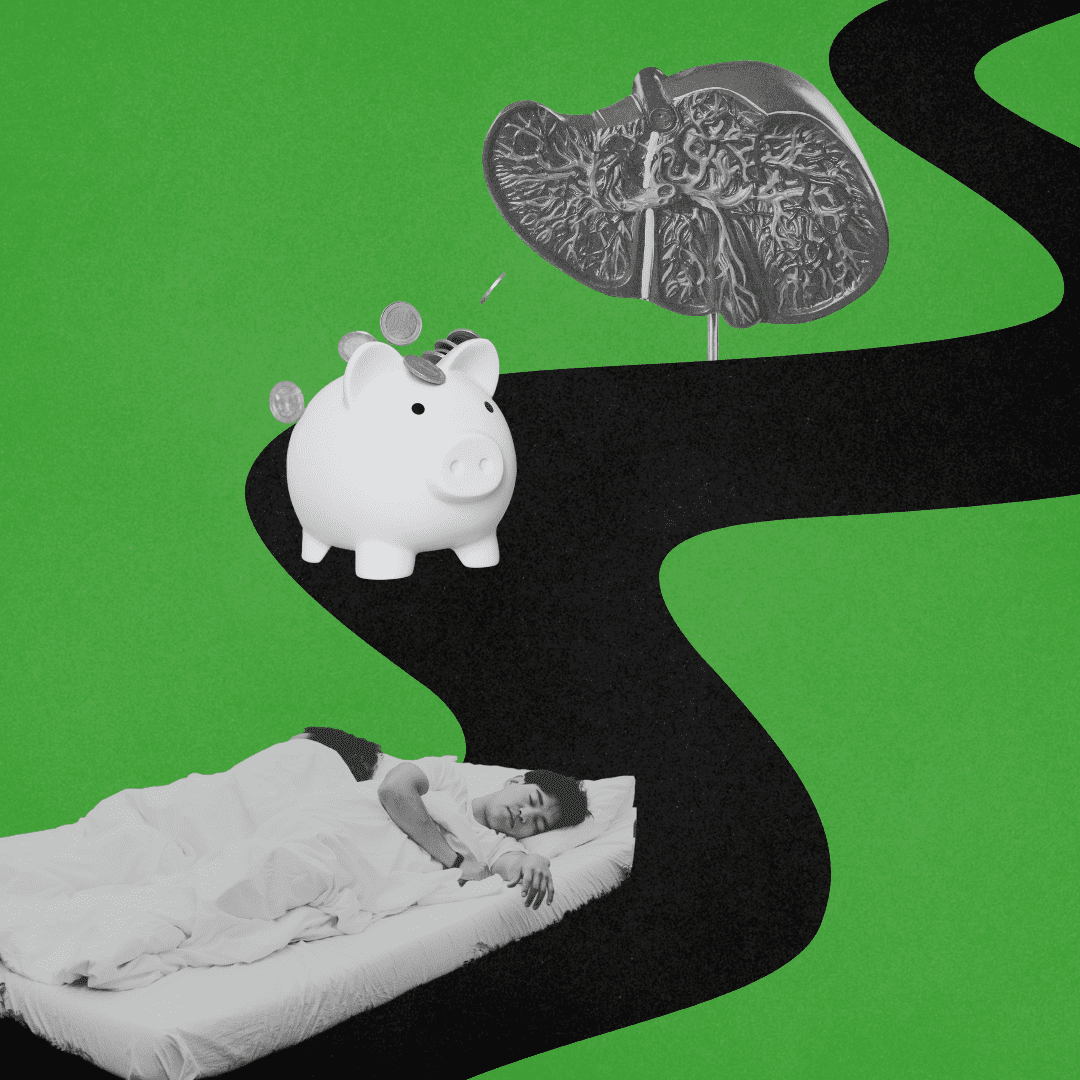If you’ve ever wondered whether the benefits of sobriety from alcohol make it worth the effort, science has an answer for you – and it’s a strong “yes.”
Whether you’re testing the waters with a 30-day challenge or seriously considering long-term sobriety, the benefits aren’t just theoretical. They’re measurable. They’re quick. And many of them keep getting better the longer you stick with it. As you embark on this journey, you may find that exploring the sober curious movement opens up new avenues of self-discovery and personal growth. Many participants report enhanced clarity of mind, improved relationships, and a greater appreciation for everyday experiences. The positive effects often compound over time, leading to a more fulfilling and vibrant life.
Let’s start with this simple idea: sobriety isn’t just about removing something – it’s about what you gain in return. Better sleep. Clearer thinking. Stronger relationships. Even better skin. Embracing sobriety opens the door to not only physical health but also emotional sobriety, which allows individuals to navigate their feelings with clarity and resilience. This newfound emotional intelligence fosters deeper connections with others and improves self-awareness, empowering you to respond to life’s challenges rather than react impulsively. Ultimately, the journey towards sobriety enriches every aspect of your life, turning obstacles into stepping stones for personal growth.
Some changes are subtle at first, others hit fast, but all of them begin adding up to a healthier, more stable – and in many cases – happier you.
5 health benefits in the first 30 days
One of the most remarkable aspects of sobriety is how quickly your body starts responding.
According to research from UT Southwestern Medical Center, a single month without alcohol is enough to begin reshaping your internal health landscape in powerful ways.1
1. Lower blood pressure
Let’s begin with the cardiovascular system.
Alcohol is a known contributor to high blood pressure, which in turn increases the risk of stroke, heart attack, and other complications. UT Southwestern researchers found that after just four weeks of abstinence, systolic blood pressure (the top number on your blood pressure reading) begins to drop significantly – particularly for those who were regular drinkers.
That’s a meaningful win for your heart and arteries, and it doesn’t take long to show up.
2. Sleep improves – fast
Then, there’s sleep. While a nightcap might seem like it helps you doze off, alcohol actually disrupts the architecture of your sleep cycle. It suppresses REM sleep, contributes to early awakenings, and fragments the deep stages your brain craves.
After cutting out alcohol, many people report more restful sleep and fewer “hangxiety” mornings. Researchers at UC Davis and UT Southwestern confirm these effects, noting improvements in both subjective sleep quality and objective measurements of REM restoration.2
3. Blood sugar and weight stabilize
Alcohol also messes with your metabolism in sneaky ways. It can cause blood sugar spikes and crashes, stimulate appetite – especially for salty or high-fat foods – and burden the liver’s insulin processing.
In a study of regular drinkers who gave up alcohol for a month, UT Southwestern found improvements in insulin sensitivity and modest, but real, weight loss.
So if you’re feeling sluggish, putting on weight despite eating reasonably, or noticing sugar cravings, a break from alcohol can act as a metabolic reset. It gives your body a breather from processing empty calories and lets your hunger and fullness hormones normalize again.
4. A liver that can finally catch its breath
Your liver doesn’t just help metabolize alcohol – it also handles toxins, cholesterol, bile, and more. Even mild-to-moderate drinking can cause liver inflammation or fatty changes, sometimes before symptoms appear.
The good news? Liver cells are incredibly resilient. In studies using ultrasound imaging and liver enzyme tracking, early-stage damage was shown to reverse within weeks of alcohol abstinence.3
Think of it as giving your liver a well-earned vacation. Less inflammation means better filtration, more stable energy, and lower long-term risks of fatty liver disease and cirrhosis.
5. Your immune system rebounds
Alcohol ramps up cortisol, your stress hormone, and increases levels of inflammation markers like IL-6 and CRP. Both weaken your immune system over time.
Once you remove alcohol, the body begins regulating these levels, allowing immune cells to function more effectively. You may find yourself catching fewer colds or bouncing back quicker from seasonal bugs.
Stat snapshot: It’s not just temporary
According to a University of Sussex follow-up study, 70% of participants who completed Dry January were still drinking less six months later.4 That suggests a short break can have lasting behavioral momentum – not just biological.
Personal development: 3 mental, social, and emotional benefits of sobriety
Of course, the benefits of sobriety aren’t limited to physical health. The longer you stay alcohol-free, the more changes you’ll notice in your mindset, relationships, and even how you spend your time and money.
1. Clearer thinking and mood stability
A key part of this change has to do with dopamine – the brain’s reward chemical.
Alcohol disrupts dopamine signaling, creating a boom-and-bust pattern where it takes more and more of the substance to feel “normal.”
Remove alcohol, and your dopamine pathways begin to reset. You start experiencing pleasure from simpler things: a good workout, laughing with friends, finishing a creative project.
People often report less irritability, fewer mood swings, and significantly less anxiety – a shift known informally as relief from “hangxiety.” That’s because your body isn’t yo-yoing between intoxication and withdrawal anymore. Your nervous system gets a break, and your emotional baseline steadies.
2. Rebuilding relationships
One of the biggest reported life upgrades among people one year sober? Stronger relationships.
You show up when you say you will. You’re more present in conversations. You’re not cancelling plans because you’re hungover or avoiding people because you’re ashamed of how you acted the night before. Trust begins to rebuild.
According to data compiled by recovery centers like Arms Acres, people in long-term sobriety often cite improved relationships – with family, partners, coworkers, and themselves – as one of the most rewarding changes.5
Using a remote alcohol monitoring system to show your family and friends you’re staying sober only amplifies this benefit.
Watch Lauren and her mother, Diane, get deep into how using the BACtrack View breathalyzer and app, as an accountability tool, strengthened their relationship:
3. Better finances, more free time
Here’s a simple calculation: Skipping just one $10 drink per night saves you around $3,650 per year (there are even sobriety apps you can use to track these savings). Of course, this figure doesn’t include tips, Ubers, late-night food, or “I’ll just grab one more” tabs.
Many people report redirecting that money toward travel, hobbies, debt repayment, or even therapy—things that add lasting value to life rather than fleeting buzzes.
What’s more, you reclaim time. No more mornings wasted nursing a headache, or evenings lost to mindless drinking. Sobriety gives you back hours you forgot you were losing.
The Timeline of Sobriety: What to Expect Over Time
So how do these benefits unfold? While the initial wave of changes happens in the first 30 days, the timeline below gives a clearer picture of what longer-term sobriety can bring:
| Timeframe | Physical Gains | Psychological Gains |
|---|---|---|
| 30 days | Lower blood pressure, improved liver enzymes, weight loss | Better sleep, improved mood, reduced anxiety |
| 1 year | Stable weight, lower relapse risk (less than 50%) | Sharper focus, better emotional regulation |
| Long-term | Reduced cancer and cardiovascular risk | Brain-circuit repair, improved impulse control |
Each phase builds on the last. It’s a compound-interest effect: the longer you stay sober, the more your body and brain repair, and the easier it becomes to maintain.
Why are sober people so happy?
The short answer: The brain loves sobriety.
The National Institute on Alcohol Abuse and Alcoholism (NIAAA) has studied how alcohol impacts brain function in both the short and long term. One of the major takeaways: chronic drinking disrupts the very circuits responsible for reward, stress management, and decision-making.6 That’s why even when drinking stops feeling good, it can feel impossible to quit.
But here’s the silver lining—those circuits do recover. Neuroplasticity, the brain’s ability to rewire itself, is especially active during early abstinence. With time, the brain regains its ability to feel joy, handle stress, and make thoughtful decisions without relying on alcohol.
So when people ask, “Why are sober people so happy?” it’s not just a platitude. It’s neurobiology. With consistent sleep, healthy dopamine balance, and emotional resilience, the brain feels good again.
And when your brain feels good, life tends to follow.
So, what are the big wins?
People often want to know: “What am I actually getting out of sobriety?” Here are 5 major wins, backed by science:
- Cardiovascular and liver health: lower blood pressure, improved cholesterol, and healthier liver function.
- Clearer thinking and stable mood: no more foggy mornings or emotional crashes.
- Restful sleep: more REM, fewer interruptions, and waking up refreshed.
- Better relationships: because reliability and presence are rare and valuable.
- More money and time: Thousands saved annually and hours returned to your life.
And then there are the unexpected perks of sobriety:
- Your skin glows. Vasodilation (the alcohol flush effect) recedes. Hydration returns. Wrinkles soften.
- Food tastes better. Literally. Alcohol dulls taste and smell receptors. After quitting, they come back online.
- You get bored – and that’s a good thing. Boredom often leads to rediscovery: painting, writing, hiking, or just finally enjoying silence again.
The bottom line on the benefits of sobriety: It all adds up
Whether you’re looking to take a one-month break, recalibrate your relationship with alcohol, or walk away for good, the data is undeniable. Sobriety delivers measurable health benefits, personal wins, and emotional clarity- fast. And the longer you go, the more powerful those benefits become.
If you drink heavily, especially daily, consult with a healthcare provider before quitting cold turkey – sudden withdrawal can be dangerous.
But if you’re just looking to reset and see what life feels like alcohol-free, the first week may be tough, but the following weeks are when the magic starts.
Track your progress. Keep tabs on your resting heart rate, sleep hours, stress levels, and even your bank balance. You might be surprised how quickly they start trending in the right direction.
And if you feel like sharing, your story could be the one that inspires someone else to give it a shot.
Your body is resilient. Your brain is capable. And your life – fully present, fully felt – might just surprise you.
Sources
- https://utswmed.org/medblog/what-happens-when-you-stop-drinking-alcohol ↩︎
- https://health.ucdavis.edu/blog/cultivating-health/alcohol-and-sleep-how-does-drinking-affect-your-rest/2022/12 ↩︎
- https://www.ncbi.nlm.nih.gov/pmc/articles/PMC5513687/ ↩︎
- https://www.sussex.ac.uk/news/all?id=50367 ↩︎
- https://armsacres.com/benefits-of-long-term-sobriety/ ↩︎
- https://www.niaaa.nih.gov/publications/brain-recovery-alcohol ↩︎

